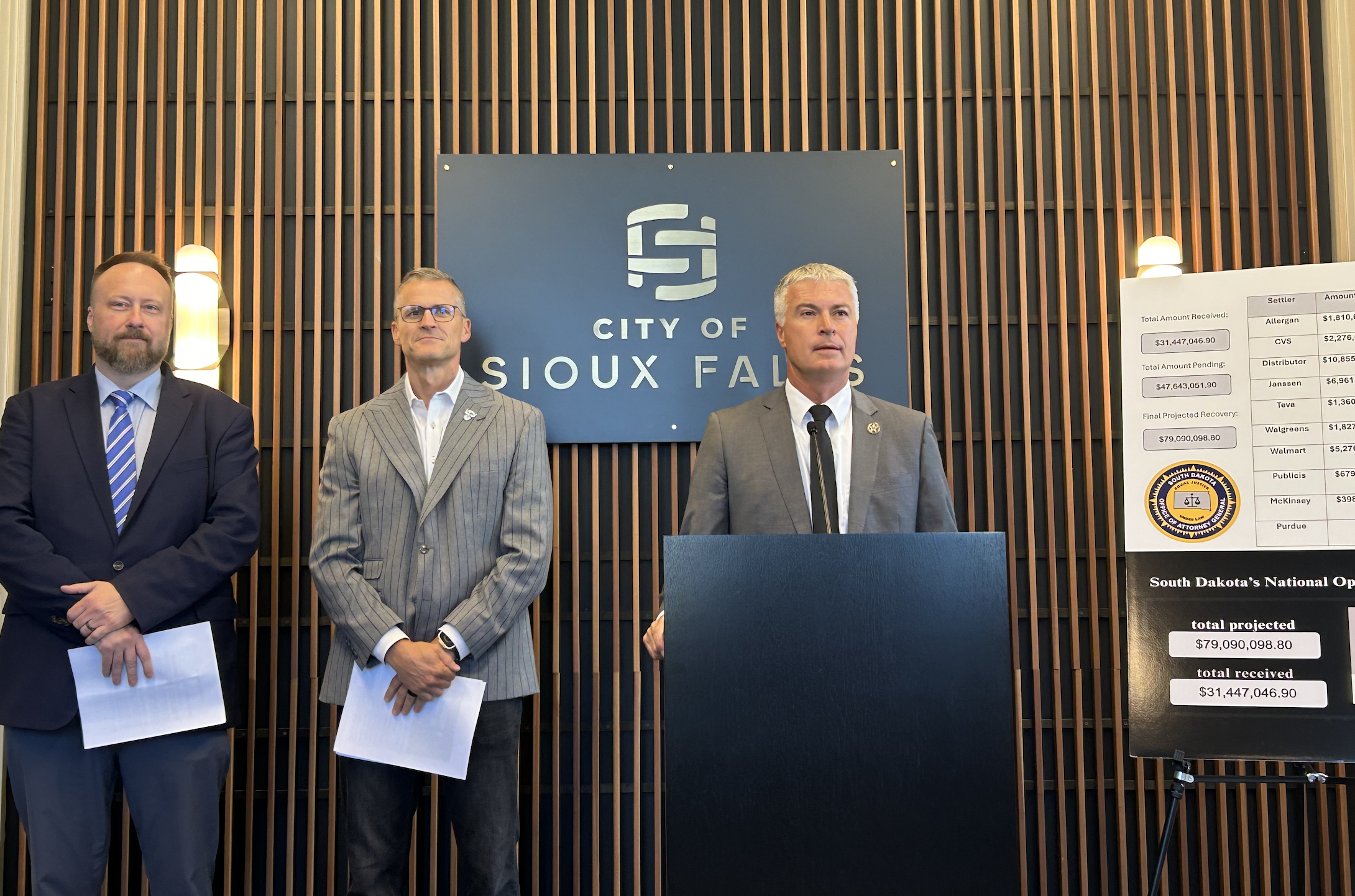Simplified: The State of South Dakota is expected to get about $79 million in opioid settlements over the next 18 years, and Attorney General Marty Jackley this week said he'd like to see that money supporting addiction treatment in the state's two largest cities.
Why it matters
- Jackley, alongside Sioux Falls Mayor Paul TenHaken and Rapid City Mayor Jason Salamun, said the state has already received $31 million and he'd like to see those funds start to get spent as soon as possible rather than sitting in an account unused.
- While Jackley said he and the two mayors have big plans to increase addiction treatment resources, the challenge is he's not in control of the money. Instead, it's under the purview of a state committee, which, as The Dakota Scout reports, hasn't been asked by either city for this money.
- Funding complexities aside, the ultimate goal, Jackley said, is to take a more proactive approach to addiction treatment. TenHaken said in Sioux Falls that could look like more funding to expand The Link and other existing services.
"I don't want to have to convict an addict of a felony before they can get connected with assistance," Jackley said.
Tell me more
Jackley has been working for some time in fighting opioid producers to gain the $79 million projected payout for South Dakota, and both he and the mayors expressed a sense of urgency during Wednesday's press conference in terms of getting the money out where it can be helpful.
"We're ready to put these dollars into action at places like The Link ... they aren't helping anyone sitting in a fund" TenHaken said.
It's unclear exactly how much money Sioux Falls would receive and where it would go, but TenHaken noted the first step would be accessing the money and then determining exactly how it'll be best put to use to support and expand existing services.
TenHaken also shared the importance of supporting addiction treatment, especially among people experiencing homelessness.
- In 2022, about 41% of people helped at The Link were unhoused, and last. year that number increased to over 60%, TenHaken said.
In Rapid City, Salamun said the funding would support the Care Campus treatment center as well as the city's mobile medic program.
What happens next?
It'll be up to the state to allocate the funds, which are currently administered by the state Department of Social Services, and Jackley said he's not afraid to lobby lawmakers during the 2026 session.


